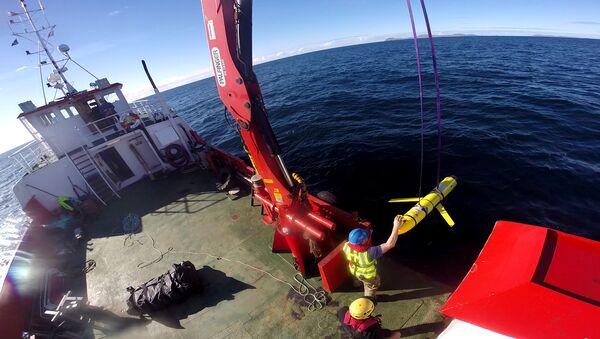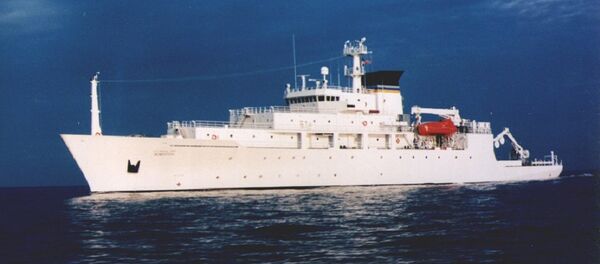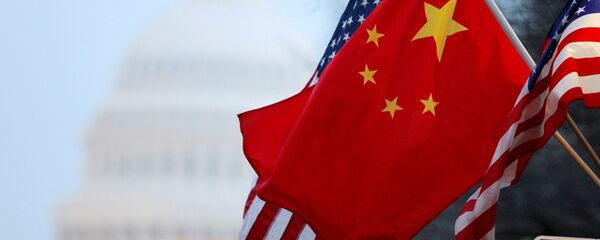On Thursday, a Chinese Navy warship seized the drone, launched from the oceanographic vessel USNS Bowrditch near the Philippines. After learning about the unmanned underwater vehicle's capture, the Pentagon called on Beijing to return the "unlawfully seized" $150,000 piece of equipment. Pentagon Press Secretary Peter Cook said that the drone was not a classified object, and that it was being used to gather information about water temperature, salinity and other indicators in local waters.
Donald Trump accused China of "stealing" the drone and "rip[ping] it out of the water and tak[ing] it to China." The President-elect called the Chinese's Navy's move an "unprecedented act."
Shen Shishun, director of the Department of Asia-Pacific Security & Cooperation at the China Institute of International Studies, a research institute administered by the Chinese Ministry of Foreign Affairs, told Sputnik China that the Chinese maneuver could be seen as an important 'message' to the President-elect.
Rejecting the Pentagon's explanation of the drone's presence in the area, Shen stressed that "the US unmanned underwater vehicle operating in the waters of the South China Sea was there to fulfill military tasks – mainly the collection of data on China's maritime activities."
Pointing out that China has made an effort recently to increase its maritime patrols, Shen suggested that "the fact that this time we intercepted the US drone and checked its ownership ('friend or foe') is our right, and relates to the protection of our territorial waters. This should not be the cause of any complaints," he stressed. "Furthermore, China has already agreed to transfer the piece of equipment back to the US…"
Commenting on the incident's "exaggeration" by US officials, the academic suggested that President-elect Trump's language about Beijing "stealing" the drone was particularly absurd. He warned that "after Trump takes office, the disagreements between the US and China over the South China Sea, which already carry a fundamental nature, may grow even deeper."
"The so-called freedom of navigation which the US claims to guard in the South China Sea is in China's opinion an act of vigilantism," Shen said. According to the academic, "the freedom and security of navigation in the waters of the South China Sea have always been assured; there have never been any problems [in this regard]. But in spite of this, the US, under the flag of 'freedom of navigation', has intruded on Chinese waters around its islands, and is conducting intelligence activities there."
Ultimately, Shen stressed that "if the US continues to grossly violate the established order, China will be forced to take defensive measures, which will inevitably lead to increased confrontation."
Ultimately, in light of President-elect Trump's remarks during the campaign regarding China, and the measures he's taken since getting elected (including the rejection of the One China policy on Taiwan) make it possible that the capture of the US drone was a kind of warning to the incoming president, and an indication that China has the capability of hindering US intelligence activities in areas sensitive to Beijing.





